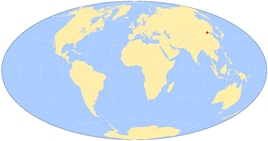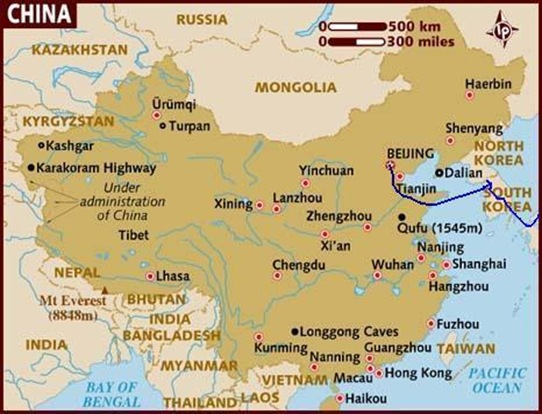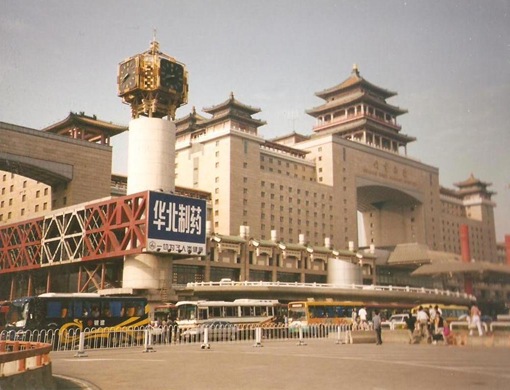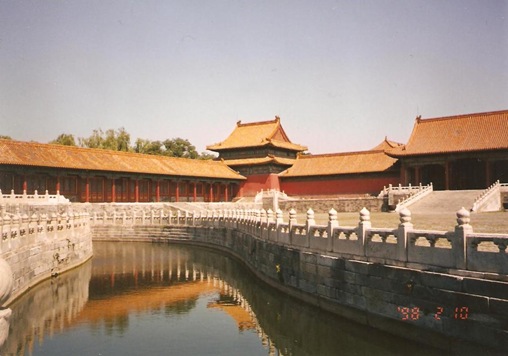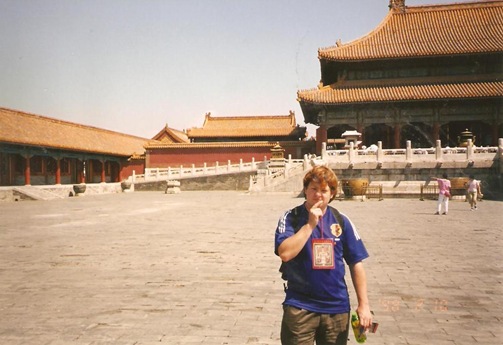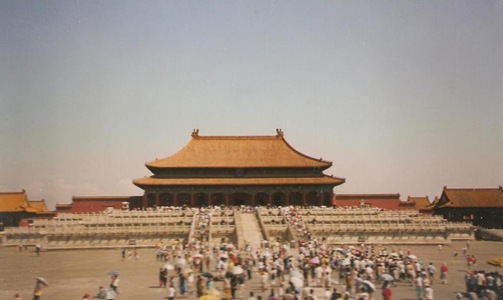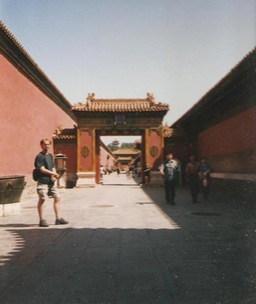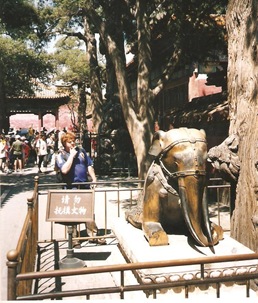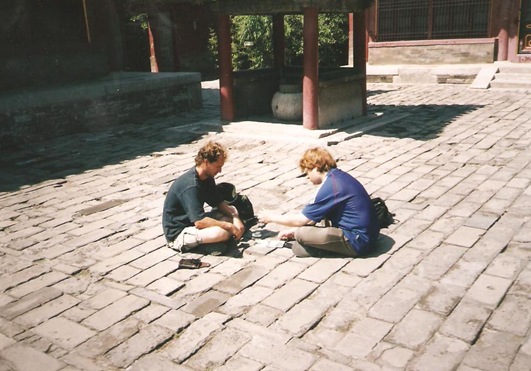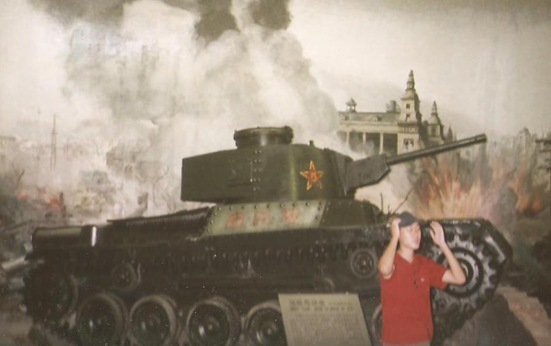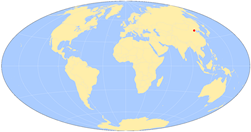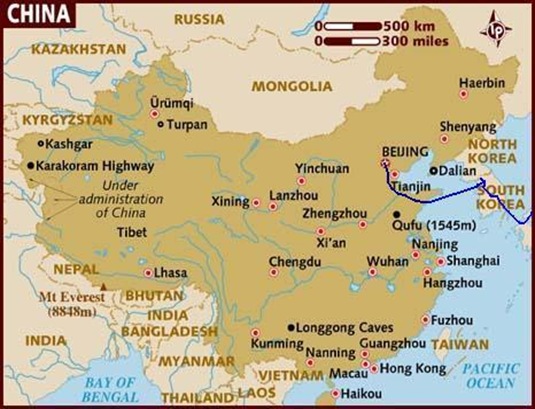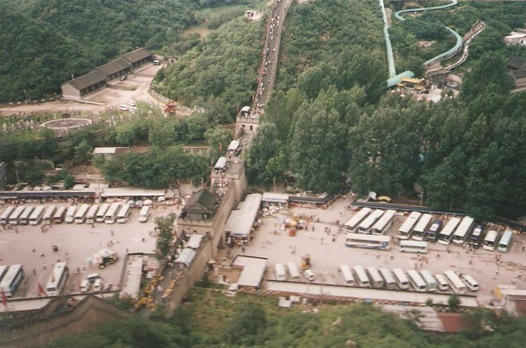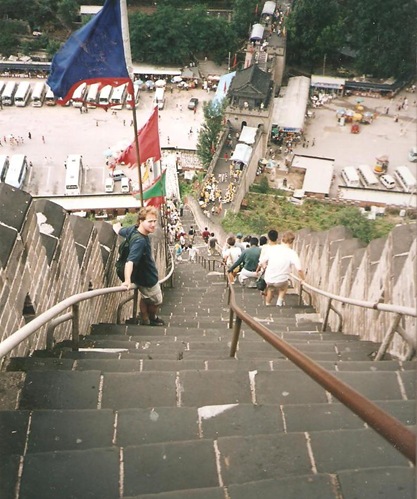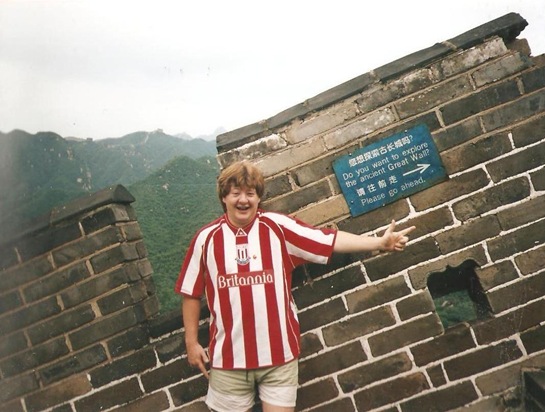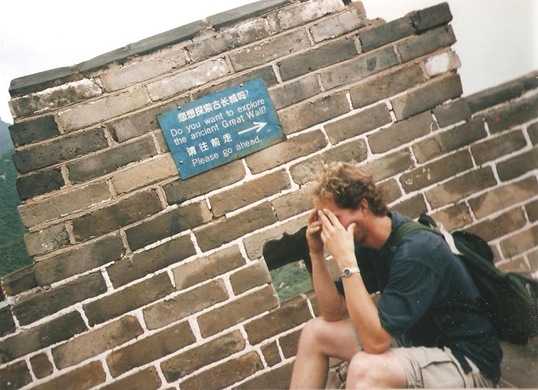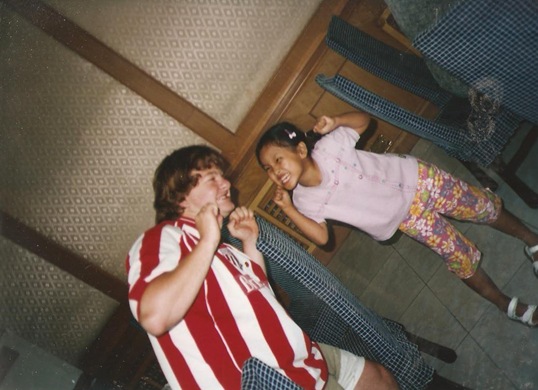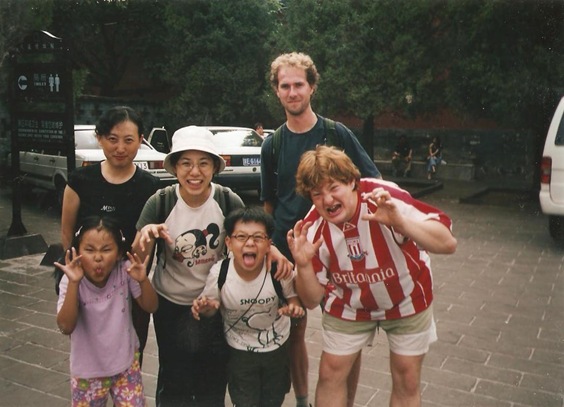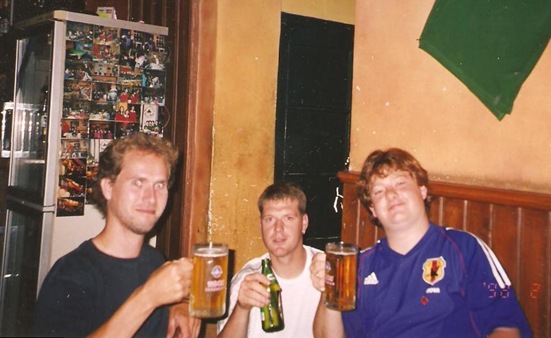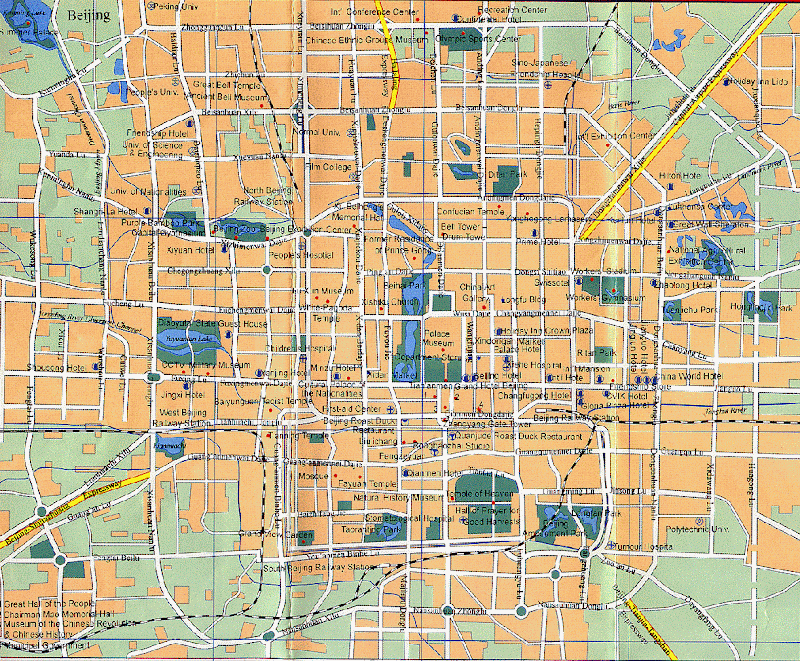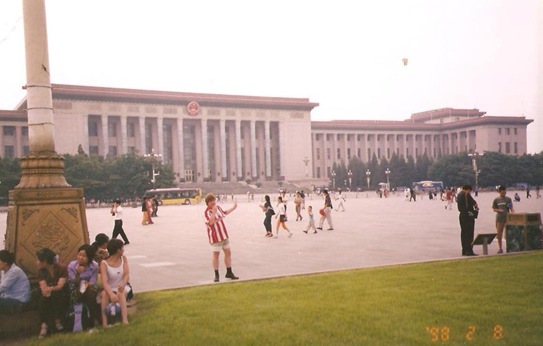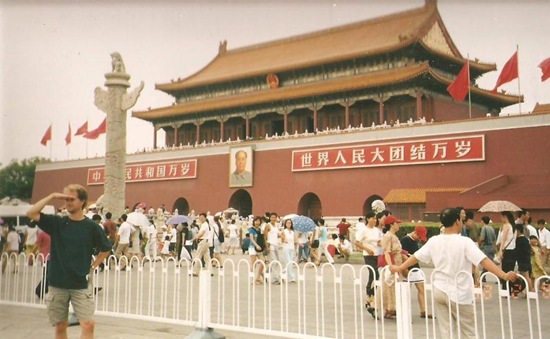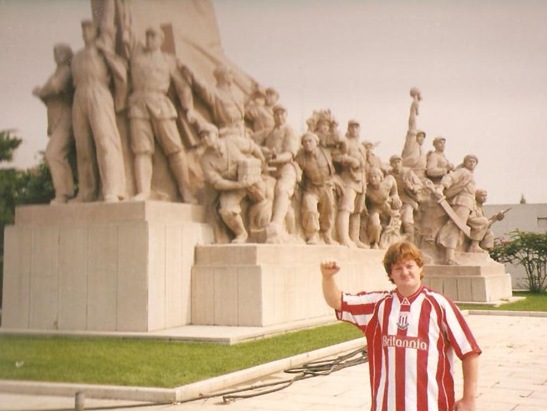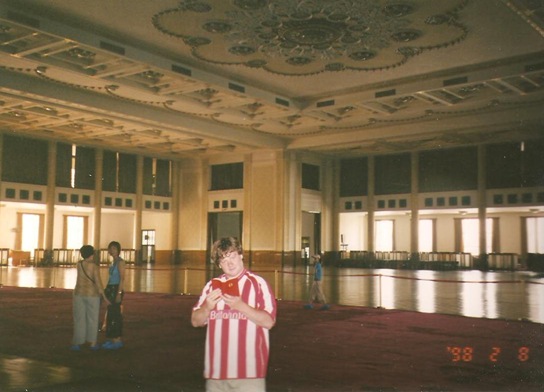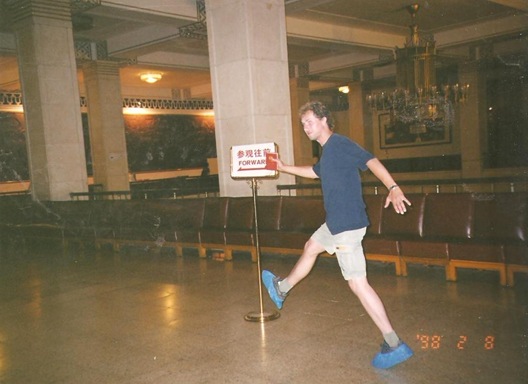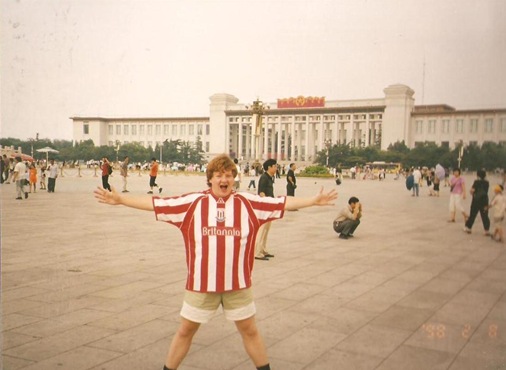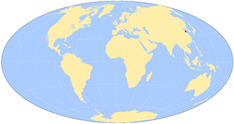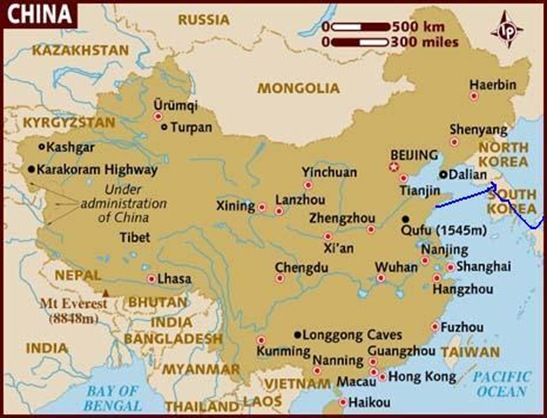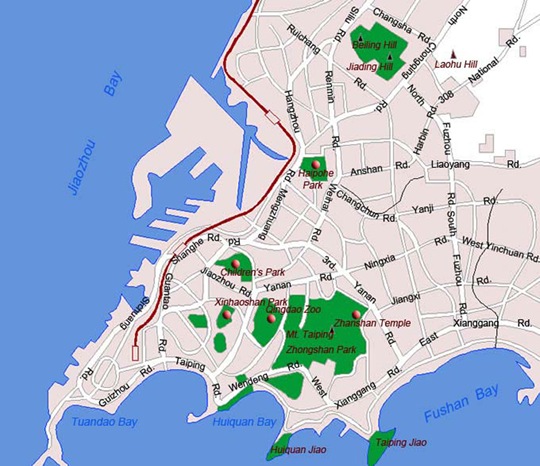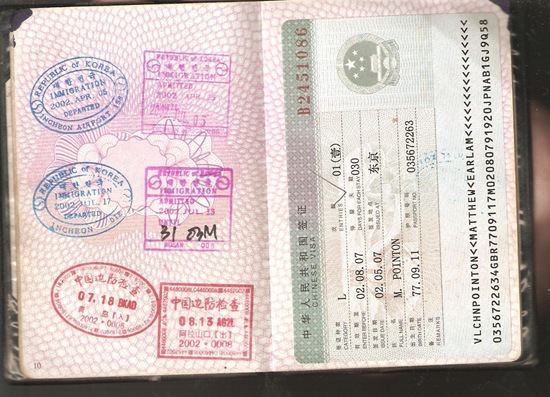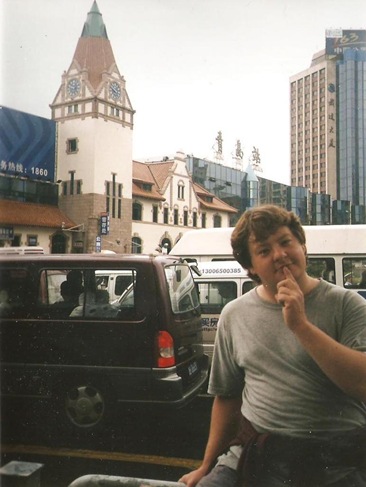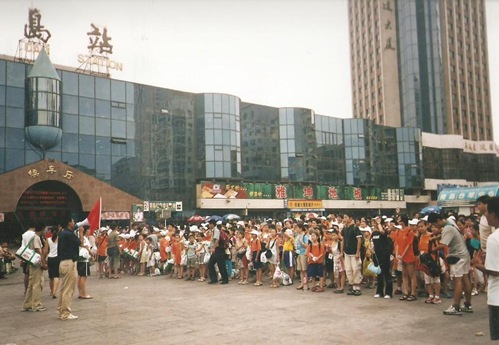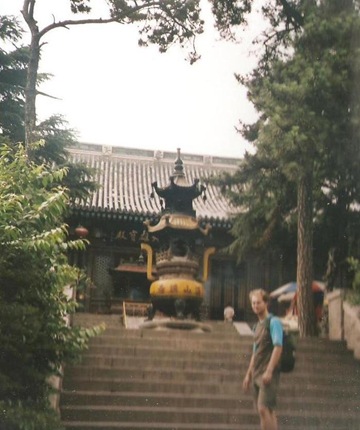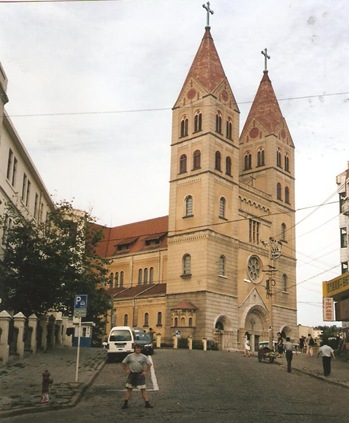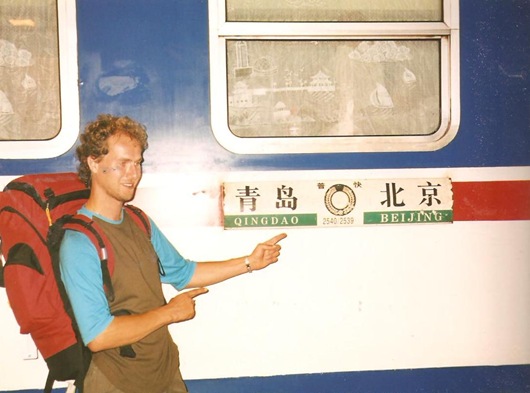Greetings!
I hope everyone enjoyed my V-log midweek which brought you up to date with some of my more contemporary travels: a weekend’s camping with my son in the Welsh mountains. It was his first time camping and he absolutely loved every minute which makes me think that it won’t be the last. How about a series of posts entitled ‘Weekends in tent with a monster?’ Hmm… maybe. Until then, back to Beijing and a peek into a city which, apparently, is forbidden.
Keep travelling!
Uncle Travelling Matt
Links to all parts of the travelogue
Book 1: Embarking Upon A New Korea
1e: Seoul, Incheon and Across the Yellow Sea
Book 2: Master Potter does Fine China
Book 3: Steppe to the Left, Steppe to the Right…
21st July, 2002 – Beijing, China
And so 'twas our final day in China’s great capital city. We arose at an early hour in 'Famous Brand' and packed our bags before getting a taxi to take us across to Beijing West Railway Station from whence our train to Yinchuan would depart. On the way I photographed a few of the thousands of cyclists for which the city is world renowned, though to be fair, whilst they were numerous, there were far less on the streets than in the Netherlands or even Japan. As progress marches on, the car and motorbike will gradually replace the pushbike and perhaps in twenty years time, the bicycle will be as obsolete a symbol of China as the rickshaw now is of Japan.
Beijing West, being the city's second railway terminal, was not somewhere that I'd expected to be of note. What had happened is that over the years, rail traffic into the capital had increased by such a percentage that the original station could no longer handle the amount of trains coming in, and so this new one had been built the cope with the overfill; a sort of Milton Keynes of railway terminii as it were, hardly something for even a train freak like myself to get excited about. Approaching the district where it stood though, the Lowlander pointed out of the window and exclaimed, “What the hell is that?”
There on the skyline stood a building of Orwellian proportions. Around fifteen storeys high and topped by three giant pagodas, it was the Ministry of Truth meets Celestial Emperor's Palace.
“Dunno,” replied I, “some new ministerial building I guess, or an enormous office block.”
But on closer inspection this proved to be no office block, nor a house of the government, but instead the very railway station that we were headed for! Two gigantic clocks stood out on cantilevered limbs at either side, whilst our taxi drove up a ramp to the entrance. We were dumbfounded yet amazed. Beijing is a city built on an immense scale like no other on earth, yet even here, in this Land of the Giants, did the station seem huge and overpowering. It spoke the aspirations of it's designers well; a gateway to the new, developing and prosperous China. Modern and businesslike, yet at the same time showing respect for history and tradition. I liked it, as it was to me the natural descendent of the great railway terminii of London like St. Pancras, Kings Cross, Paddington or Victoria. Cathedrals of the new industrial age and bold statements of a faith in technology and the future. What a shame that we in the land where the railway train was born seem to have lost respect for our invention, and produce such pathetic glass, concrete and steel edifices.
We locked our bags into the left luggage and checked the departures and layout of the place before heading out to see the sights. As I've already said, this was to be our last day in Beijing, possibly ever, and there was lots that we hadn't seen yet, including the city's foremost tourist attraction, and the place that we were now heading to, the Forbidden City.
The Forbidden City confuses many by its name, since it's not actually forbidden in the slightest, but instead thronged with multitudes of sightseers from all over China and (like us) beyond. But the name is an apt one because for many years, (over five hundred of them in fact), forbidden it very much was. Originally established between 1406 and 1420 by Emperor Yongle, this is the palace from which the vast Chinese Empire was ruled, and in which a sizeable proportion of her wealth was spent, building new structures and keeping the Emperor's personal army of concubines and eunuchs in the lap of luxury. Despite its fame, importance and appearance though, the present buildings are not that old, fires and invasions having destroyed the originals, and nowadays what you see largely dates from the nineteenth century. Nonetheless, it's still a site to see, (or so they reckon), and so the Lowlander and I were soon queuing up for a ticket to do just that.
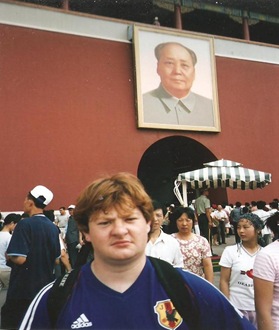
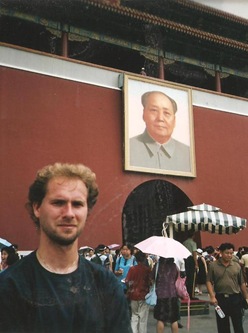 At the entrance to the Forbidden City with Mao
At the entrance to the Forbidden City with Mao
They say that the Forbidden City takes at least half a day to look round, but we did it in a couple of hours, being rather surprised when we got to the far end, (“I thought that it went on much further than this...”) That it is beautiful is without doubt, and that many of the carvings are exquisite is true also, but I for one felt that something was missing. Courtyard after courtyard, surrounded by well proportioned dark red buildings with graceful golden tiled roofs. Yes it was something special indeed, but to me it was not soothing or peaceful, even away from the hordes who thankfully seemed to stay in their groups only on the central path through the complex. Sat down playing backgammon in one of the smaller courtyards, I realised what the problem was; there was an abject lack of greenery. Even the gardens at the rear were as much stone as they were vegetation and throughout the whole palace, not a lawn was to be seen and few trees or water features also. Perhaps it was because as Europeans we're more used to our style of stately home, surrounded by acres of lush fields, woodland and vegetation, I know not, but the Lowlander and I, whilst enjoying Beijing's number one tourist site, came away feeling slightly down at heart, for not only had the greenery been lacking, but in quite a few places, it was obvious that the maintenance was too, and several of the courtyards were rather overgrown indeed.
Emerging onto the vast totalitarian expanse of Tiananmen Square, I wanted to join the queues and pay a visit the Mighty Mao who is lain out to rest in the 'Maoseleum' at the far end of the square. However, just a glance at the vast hordes waiting to see the Great Leader told us that with a train to catch several hours away, this might not be such a wise idea, as we'd probably still be queuing as our steed chugged out towards Yinchuan, so disappointed I turned about face and headed down into the depths of the Metro system to catch a train to Beijing West station. No Mao for me alas, but never fear, there was still Lenin waiting in Moscow!
Beijing's metro system was, I must admit, a bit of a disappointment to me. Communist underground railways are, I am told, Palaces of the People, full of murals of prosperous workers, mosaics of tractor plants and busts of great leaders, but this one was alas, as plain as its contemporaries in Tokyo and Rotterdam. What's more, it didn't really get you to many places. For a city of over twelve million, two lines is hardly sufficient and many important places are some distance from a stop, including Beijing West Railway Station. Certainly I hope that they improve things in preparation for the Olympic Games.
The stop nearest to Beijing West was Junshibowuguan, which was only a block away from the Mega Station that we were to depart from, so we took a train there intending to walk the rest. However, upon emerging from the depths of the earth, we noticed a huge Stalinist building across the road from us, topped by a gigantic red star. “I wonder what that place is?” I said, and after consulting the guidebook I discovered the answer to be the Junshibowuguan which had given the metro station its name. “But what's a Junshibowuguan?” asked the Lowlander. The guidebook soon revealed the answer to that too. 'Military Museum'; the place that details the history of the People's Liberation Army since its formation in 1927, and also many of the wars fought on Chinese soil throughout her long history. Well, we had an hour or two to spare, so why not sample a few bombs and guns?
I enjoyed this place. Although not really a militaristic kinda guy, I've always found pleasure in ogling a tank or two, and this place had lots of them, as well as planes, missiles and other military what-nots. What was best of all though was how it was all mixed in with some hard core propaganda with statues of leaders and tales of the evils of imperialists aplenty. I particularly enjoyed the piece on the Opium Wars which certainly did not paint a favourable picture of my home country, (although to be fair, we were pretty out of order on that one), and of course the depictions of battles with that evil of evils, the Kuomintang, from whom China was so thankfully (they said) liberated.
We left the museum approximately half an hour before our train was due to depart, and made our way the short distance across the block to the railway station. Or at least, that's how it seemed on the map. In reality, this single block was over a kilometre long. That for me was the strangely disturbing thing about the Chinese capital. It is handsome, ordered and in many respects pleasant, yet its scale is so inhuman that I for one felt ill at ease there. Tiananmen Square can host well over a million, a block is a kilometre long... everything is huge! How ironic as well that one of the world's shortest races of people should have built it. Is it an inferiority complex?
Approaching that mammoth modern-day cathedral of the railway train we were more than a little surprised to see that instead of over an hour, the enormous clocks informed us that we had but fifteen minutes before our train departed. “I thought you said that we had plenty of time?” I asked the Lowlander. He looked at the watch that Chi had given us at the DMZ. According to that fine timepiece, we still had an hour and a half to spare. It had stopped once again! We quickened our pace into the building, wolfed down a take-away meal, collected our bags and joined the queue for the departure to Yinchuan.
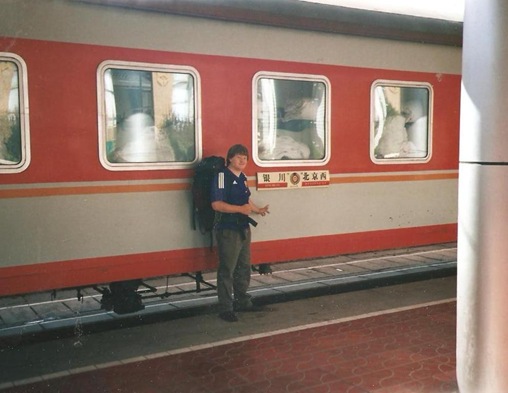 Boarding the train to Yinchuan
Boarding the train to Yinchuan
Boarding the train we discovered that hard sleeper meant six in a compartment, (not that they were really compartments, being open to the corridor), with bunks stacked on top of one another in piles of three. We parked our bags with difficulty on the already-crowded luggage rack and settled down for the ride. The train pulled out of Beijing West on time and threaded its way slowly through the suburbs of China's premier city. From the window a less glossy picture of the capital emerged; red brick slums reminiscent of Victorian England, a far cry from the plush apartments that we'd seen from the roads. Even these though, were far from being Third World standard. True they were small, far from new and not likely to win any architectural awards, but the vast majority were well-maintained and presentable. Beijing is not as rich as it initially appears, but on the other hand, it is far from poor too.
The city cleared but the train rumbled on, upwards into the mountains. For a while it followed a spectacular gorge with sheer cliffs and peaks that reached into the sky, like those on the Chinese ink prints of yore. The train popped in and out of tunnels and over girder bridges whilst on the river below a pleasure boat plied its trade.
Our travelling companions were many, with every bunk in the coach being taken. Close to us were a young student, a shy lady of around forty with a pretty face and her hair coiled in plaits at the back of her head, two young mothers and their daughters; a wide-eyed tot of around three clad in a traditional dress and a lively girl of around seven with pony tails and a cheeky grin. She amused herself by making monster faces at me and playing paper, scissors, stone. After that she decided to start giving me things, firstly a chocolate bar, then some peanuts and lastly some small prints of Buddhist gods and holy figures. I responded by buying her a yoghurt drink which she drank quickly after contemplating for around twenty minutes whether to accept it or not.
Fun and games on the train to Yinchuan
The scenery outside had now softened into a flatter landscape filled with heavy industrial plants, mines, red brick proletarian housing and vast collective farms. This was the China that I'd expected to find, a much larger Oriental Eastern Europe where those who toil reign supreme. Yet unlike the lands east of Austria, everything here still seemed to be functioning. It wasn't the flash and opulent world of Japan and South Korea, but it wasn't the desolate wasteland of the former Soviet bloc either. If anything, my impression was of another age, the time when my grandfather grew up when one worked hard and knew about industry and coal was king. And to complete the picture there was even the odd steam locomotive smoking away in a siding, ready to take a trainload of that essential black ore away to some unknown destination.
But this scene also lasted not. Very soon the factories and houses disappeared and we were trundling through a barren landscape in which one would more expect to find the Lone Ranger than Chairman Mao. A dusty plain stretching for miles with dry mountains in the distance. On the slopes of some of these were painted huge white characters, no doubt spelling out some enthusiastic message of proletarian achievement to the passing masses.
We retired to the dining car for backgammon and a meal of bony chicken. There we befriended the portly on train policeman, a jolly fellow who helped us decode the menu by mimicking the noises that each dish had made before it had been killed and cooked, (N.B. Yet another reason why meat-eating is preferable to vegetarianism; you can't do that with vegetables now, can you?). Later that evening, we met him again, drunk as a lord and eating with his colleagues. He greeted us with a hearty 'How do you do?!' before banging glasses and toasting our health in Mandarin.
Just after the stop at Datong, the sky grew dark and we busied ourselves with books and backgammon in-between toasts with the pissed policeman. We asked to take his photo, but he stoutly refused. I assume that the reason behind it is that drinking on duty is strictly prohibited.
Next part: 2e: Yinchuan (I)
